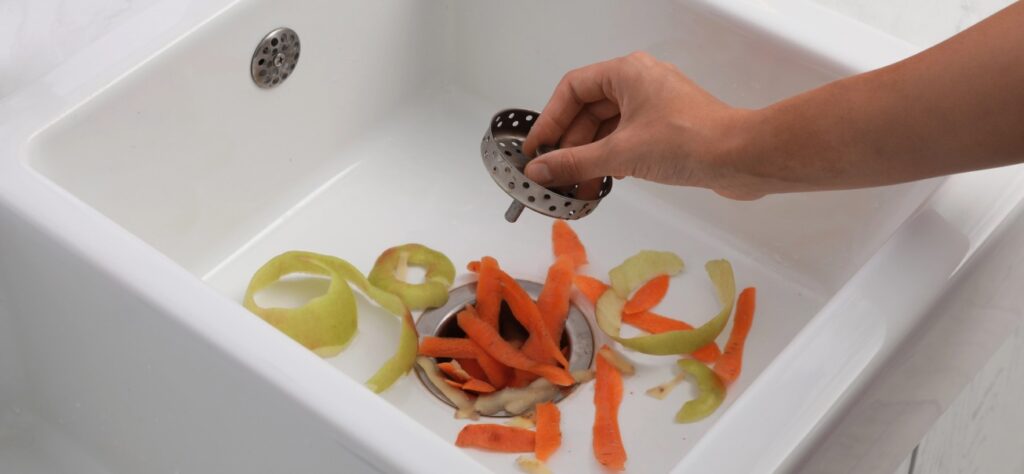Your garbage disposal works hard to grind up and flush food scraps down the drain. However, if you don’t follow proper practices when using it, such as running cold water during and after use, food scraps can build up and eventually create bad odors.
Proper Tools for Cleaning Your Garbage Disposal
When cleaning your garbage disposal, keep your hands away from the blades. Opt for brushes or long-handled tools designed explicitly for garbage disposal cleaning. Never put metal objects down the disposal, as they damage the blades and can cause an accident. Also, avoid harsh chemicals like bleach or drain cleaners, as they are not designed to remove debris from the garbage disposal.
Quick and Easy Ways to Clean Your Garbage Disposal
Cleaning your garbage disposal doesn’t take much effort. You can get your kitchen sink smelling fresh again with everyday household items. Ice Cube Technique
Ice cubes are an effective technique for cleaning and sharpening garbage disposal blades. Crushing ice cubes in the disposal helps dislodge food debris and other residue stuck to the blades, keeping them sharp and clean.
The Power of Baking Soda and Vinegar
A solution of baking soda and vinegar is a natural cleaning solution for a clean garbage disposal. Pour half a cup of baking soda into the disposal and let it sit for 30 minutes. The baking soda will fight odors, then pour a cup of vinegar into the disposal. Let the mixture sit for a few minutes, then rinse with hot water.
Citrus Peels for Freshness
Citrus fruits are naturally aromatic. Crushing lemon or orange peel slices in the garbage disposal helps clean out grime buildup and breaks down grease and grime.
What not to put in the trash
Only biodegradable items should be thrown out at garbage disposal. Limiting what you put in the disposal to food scraps like fruits, some vegetables, and small amounts of cooked food scraps will help prevent malfunctions, jams, or breakdowns. Non-biodegradable items like plastic, metal, and glass should never be put down the disposal. Oils, grease, paint, starchy foods, onions, corn husks, and celery are also not recommended items—it’s better to put them in the trash or compost bin rather than risk damaging your garbage disposal. Also, avoid putting hard-to-grind items like eggshells, coffee grounds, or fibrous items down the drain. These materials tend to stick to the sides of the disposal and create blockages over time.
When to Call a Professional
While regular maintenance and do-it-yourself methods can help keep your garbage disposal clean, sometimes it’s time to call a professional. Contact a plumber if your garbage disposal has a persistent unpleasant odor or a clog that is particularly persistent even after a thorough cleaning. Plumbers have the experience and tools to handle these problems effectively.

